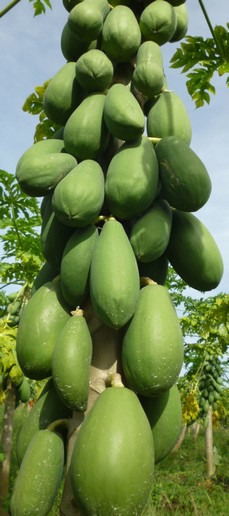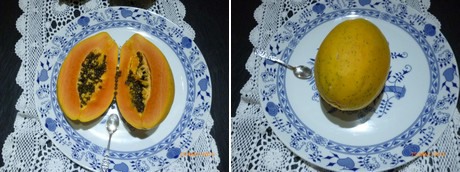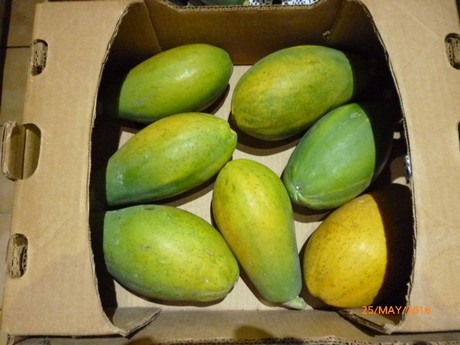
Costa Rica is a small country compared to other tropical fruit producing countries of Central America, but its extraordinary soils guarantee excellent quality fruits. An example of this is the Pococí papaya, a Costa Rican variety that is mainly exported to Canada. "It is a variety grown only in Costa Rica, as the seeds are produced by a state project of the University of Costa Rica and the Ministry of Agriculture." The variety gets its name from the Pococí region, in the Costa Rican Caribbean, where researchers conducted tests for the production of this seed. "It's a special variety, because it is sweet and very firm. It is grown all year round. Canadian customers believe it is the best papaya," affirms Anabelle Solano, owner of EICSA, which has been exporting Pococí papayas to the Canadian market since 2007.
Solano explains the reasons for giving priority to this market: "Canada is a very large market that consumes a lot of papayas. They are very fond of the fruit. They consume the same volume of fruit as the United States." Also, Canada has numerous Latin American and Asian communities, which are major consumers of papayas. For them, papaya is not an exotic product, but one with which they are very familiar. It is a good market, even though Costa Rica faces competition for a few weeks, namely in April and in August/September, when there is plenty of papaya available, especially from Mexico.
Another important factor is the transit time by sea from Costa Rica: 8-9 days for Canada and 14 days for Europe. "Papayas are sensitive to the weather conditions and they are not easy to produce." "Long ago, we did not have many pesticides registered in the SFE that were suitable for use with papayas, and the lack of a GlobalGAP certification has limited our access to Europe." Today, the situation is different and it is possible to work under GlobalGAP and Global Food Safe certifications, although, of course, we are certified for Good Agricultural Practices by the Ministry of Agriculture of Costa Rica."

When EICSA finally obtained the GlobalGAP certification in 2014, the El Niño phenomenon arrived and there was plenty of rainfall and flooding in the Caribbean region, so the production was reduced and there were great losses. "Now, we are going to renew our GlobalGAP, in its new standard, version 5."
EICSA offers a fixed price all year round. "We are always looking to produce in a sustainable manner and that is what we try to convey to our customers; by having the same price all year round, producers are in a safer position, as it guarantees a fair and adequate income." It is worth recalling that many small pineapple producers had to abandon their production because of the lack of stability, as prices rose and fell steadily.
"My company has 11 hectares, but we work closely with other small producers. Together, we currently have about 60 hectares," estimated Solano, "and we should exceed 120 hectares by 2017."

EICSA is also taking part in research programmes for new varieties, such as that of the so-called CandyPapaya, because it is small (500-700 grams) and sweet. They have already started harvesting certified organic products and the conventional production will start within 2-3 weeks. Solano is optimistic about "a great potential for the future. Our philosophy is to always seek innovation, to launch new and unique products. We try to grow fruits that the large countries do not have and look for niche specialties."
"The agricultural production in Costa Rica has higher costs than in other countries, so our products must be differentiated," he concludes. "But we are proud of our social guarantees, and now we must grow our products while protecting the environment, looking to reduce our carbon footprint as much as possible."
 More information:
More information:
Anabelle Solano
Eicsa S. A.
Costa Rica
T: 506-22244887
M: 506-88155199
E: [email protected]
www.eicsacr.com



 More information:
More information:



 More information:
More information: